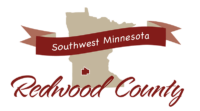What is Reparations
The Minnesota Crime Victims Reparations Board is a state program that was established by the Legislature in 1974 to help victims with their financial losses and aid in their recovery from a violent crime. Reparations can compensate victims for expenses related to the crime, including medical bills, lost wages, funeral expenses, and loss of support. There is no compensation for property loss.
Eligibility Determination
The Board reviews information received from the victim, police, prosecutor, and medical records to determine if eligibility requirements have been met. The Board then votes to pay, reduce, or deny the claim.
- Crime must have been reported to police within 30 days (no time limit for sexual assault and child abuse victims, but crime must be reported)
- Application form must be submitted within 3 years of the crime (child abuse claims must be filed within 3 years of the date the crime was reported to police)
Victims of violent crime should apply for reparations even if they are also requesting restitution.
Victims and their families do not have to wait for the completion of any medical, dental, or mental health treatment to apply for reparations. They are encouraged to apply as soon as possible after the incident to accelerate reimbursement.
The Board
The Minnesota Crime Victims Reparations Board is made up of five members including a doctor and a crime victim. The Board meets once a month to review claims with eligibility concerns.
Claim Forms
Claim forms are available from the Minnesota Crime Victim Reparations Board at:
651-201-7300 or the Office of Justice Programs online.
The Crime Victim Service Coordinator at the Redwood County Attorney’s office can assist with Reparations claims. Community victim advocacy programs are also available to assist.
Appeal Rights
Attorney Help
You may wish to speak to an attorney before making the decision to request a hearing or seek a review by the Minnesota Court of Appeals. For help finding an attorney, you may call the lawyer referral service of the Minnesota Bar Association:
- Ramsey County: 651-224-1775
- Hennepin County: 612-752-6666
- Dakota County: 952-431-3200
- Other Counties: 1-800-292-4152
The Board will not pay for the cost of your attorney. If you cannot afford an attorney, you should contact a Legal Aid Office:
- Hennepin County: 612-332-1441
- Ramsey, Washington, Scott, Carver, and Dakota Counties: 651-222-4731
- Rural Counties: 1-888-575-2954
Additional Resources
- Reparations are the payer of last resort.
- Victims do not pay income tax on their awards, they do not have to use life insurance or memorial funds (like Go Fund Me) toward their bills.
- If the crime could’ve been charged higher but wasn’t AND the higher crime is covered by reparations then the victim could apply OR if the defendant is dead so there is no one to charge the victim can apply.
- Reparations will look at car crashes on a case by case basis so you can always check to see if your unique set of facts fits something they can cover.
- Victim’s family members still all fall under one claim number and one set of limitations for the disbursement of funds however, it is easiest if each household fills out an application.
For example: you have a child victim with divorced parents then each household would do an application BUT be under ONE claim number. That protects co-mingling of details the other household may not want known from their application.
- When asking for reimbursement for counseling, victims need to have used a licensed counselor or social worker otherwise the claim won’t be covered.
- Cultural healing ceremonies can be covered through reparations but it is best to have it pre-approved.
- If the victim does not want to put their SS# on the application they don’t have to UNLESS they need to be paid directly from the board so, if they don’t expect a check themselves they can choose to leave their SS# to TIN# off the app.
